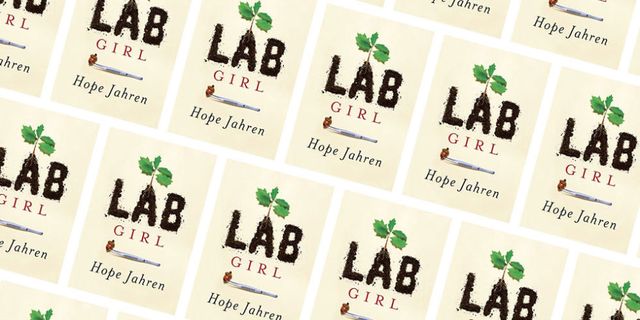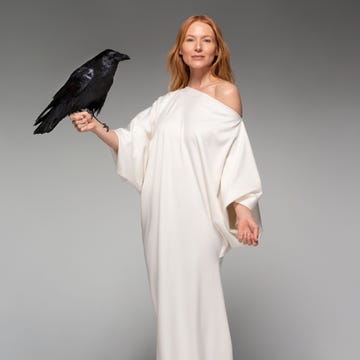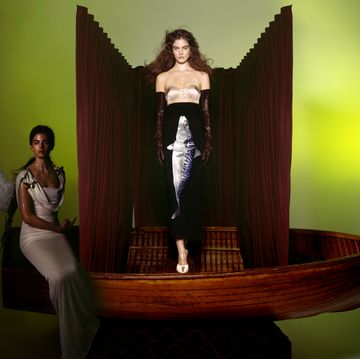This article originally appeared in the April 2016 issue of ELLE.
Plants make excellent metaphors. Seeds can wait years for the right sprouting conditions; saplings strive for light; trees form symbiotic relationships with other organisms and struggle to reproduce. In her deeply affecting memoir, Lab Girl (Knopf), the pioneering geobiologist Hope Jahren exploits her study subjects, which range from fossil seeds to conifer forests, to limn her journey as an insecure young scientist through anxiety to full-blown, head-banging mania—and then meds, medals, and professional and personal fulfillment.
Raised in a cold and silent Scandinavian household "under too much shade," Jahren recognized as an undergrad that science would be her true home—a place of safety, warmth, and light. In science, she could be part of something larger than herself. A belletrist in the mold of Oliver Sacks, she is terrific at showing just how science is done: the painstaking hours in the lab, where she analyzes plant isotopes to deduce earth's climatic history; the drudgery of the field; and the never-ending quest to secure funding. But her prose reaches another dimension when she describes her remarkable relationship with a lab guy, a self-hating undergraduate loner named Bill. The research partners dig holes, gather soil samples, battle personal demons, and keep each other grounded. (Bill tells Jahren, who is bent on revisiting a cheesy roadside attraction, that his enjoyment of the place "is compromised by your babbling about Greek crap, which starts earlier and earlier during each trip, by the way.")
Jahren's writing is precise, as befits a scientist who also loves words. She's an acute observer, prickly, and funny as hell. Lab Girl does have one flaw: Jahren feels perpetually dissed by male scientists, but she offers little empirical evidence of gender bias. Yes, sexism in the field abounds, but without actually showing this, Jahren misses a chance to enlighten readers who may presume those days are long gone.
Lab Girl is a totally original work, both fierce and uplifting. And so we indulge in the author's exuberance with botanical metaphors. She's living (and much-lauded) proof that people, like seeds, sometimes need a little help—so that "in the right place, under the right conditions, you can finally stretch out into what you're supposed to be."













